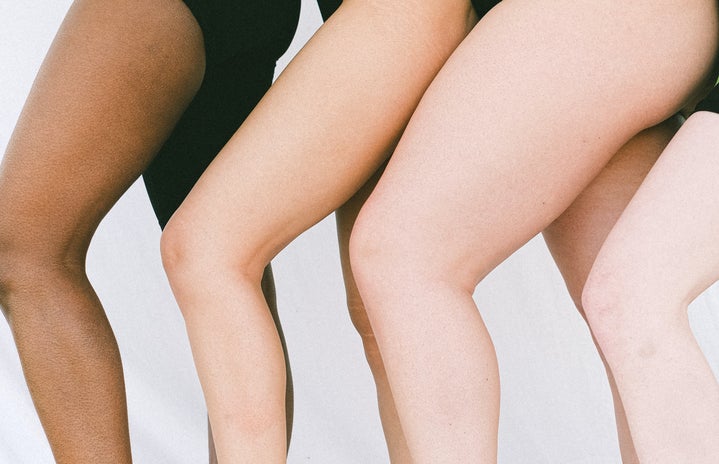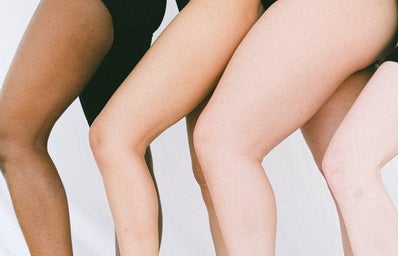I love going back to my hometown to meet my extended family, be it a wedding or a birthday since it brings back a lot of childhood memories. My latest visit, however, made me realize a pattern that had been persisting forever. Whenever I met people, they had to pass comments on how much I’ve grown, as they always do. But in most cases, I was met with “Kitni sawli ho gayi hai! Kya hogaya?” (Your skin color has become so dark, what happened?)
Unfortunately, it was something I’d become immune to. From being told to not drink too much tea, to being advised a variety of homemade skin-whitening ‘formulae’, I’d heard it all. Every time it nurtured my insecurities, and every time, I suppressed it. Not until this visit did I realize how subtly these comments had manifested themselves in my mind and fueled my lack of self-confidence. Having always been an excessively self-conscious person, I tried it all – every product which had the word ‘white’ or ‘fair’, trying to turn my (brown) frown upside down maybe? It got exhausting.
I looked at all the women around me, noticed how we were all conditioned to live up to the ‘white beauty standards.’ Bollywood heroines were almost always fair-skinned or burdened with an excessive amount of makeup. Every other song referred to the girl as ‘gori’ which translates to fair-skinned. The Hindi film industry has recently outdone itself with a new song, again using ‘gori’, and making a comment on how Beyoncé, an icon, a black woman, will be ashamed after looking at a fair-skinned girl. Indian matrimonial advertisements specified directions like ‘fair-skinned girl wanted.’ Advertisements depicting stories of men and women being shunned because they were dark, to becoming stars after using a product and becoming fair played on every TV channel, back to back.
Did this problematic issue ever strike me growing up? Not one bit. In fact, even after I became aware of it, I recently counted and discovered at least ten different cosmetic products with the word ‘white’ or ‘fair’ on them at home. Despite being on the path of self-acceptance, I still have an underlying wish I wasn’t as dark-skinned as I am. I think about all the bullying I could have escaped if I was attractive in the way the world expected. And I’m not alone at all. Women and even men of color all over the world have subconsciously, or otherwise, bowed down to this unreasonable Caucasian standard of ‘beauty’.
India, among many eastern countries, pretends as if racism is an alien concept to us, that we do not partake in what is practiced by the Americans or the ‘white’ people against a certain community, as are we quick to raise our voices for movements like the BLM, without recognizing the injustice at home. This hypocrisy drives not just tokenistic corporates and celebrities, or our orthodox extended families, but even those of us who claim to be ‘progressive’ and ‘liberal’. It has been ingrained in our minds since birth to associate beauty with a particular skin color, and it doesn’t end there. In many ways, it influences people’s level of success. The hampering of self-worth caused due to inherent racist practices has larger implications, especially for those who are already fighting many other battles, to be seen and heard.
If we observe it historically, colonialism has, in many ways, stimulated this paradigm. It presents itself in our everyday lives in such elusive ways, that we don’t even think twice about it. People are not even familiar with the fact that one’s skin color has nothing to do with how attractive one is. A vast majority, especially the brown population has no understanding of the concept of skin pigmentation. To us, it’s dark, it’s dirt, we must scrub it off or cover it up using fifteen different cosmetic or skincare products.
“Beauty lies in the eyes of the beholder,” they say. If the beholder has been taught that a person is only good-looking, only worthy if they are fair, what can the eyes really do?
While we look at the current scenario, the very fact that the idea is being recognized by people, not solely women, paves a path for progression. Very recently, a fairness cream in India dropped the word ‘fair’ from its name. While the product remains the same and stands for subtle colorism, this change was extremely performative. However, the fact that even a change as minor as this took place compelled people to think about its normalization. It started a debate and sparked uncomfortable conversations, which have to be had in order to put an end to this discrimination.
The way forward now is to persistently challenge these un-‘fair’ ideals, so that one day people like me can adorn the ‘brown crown’ instead!


